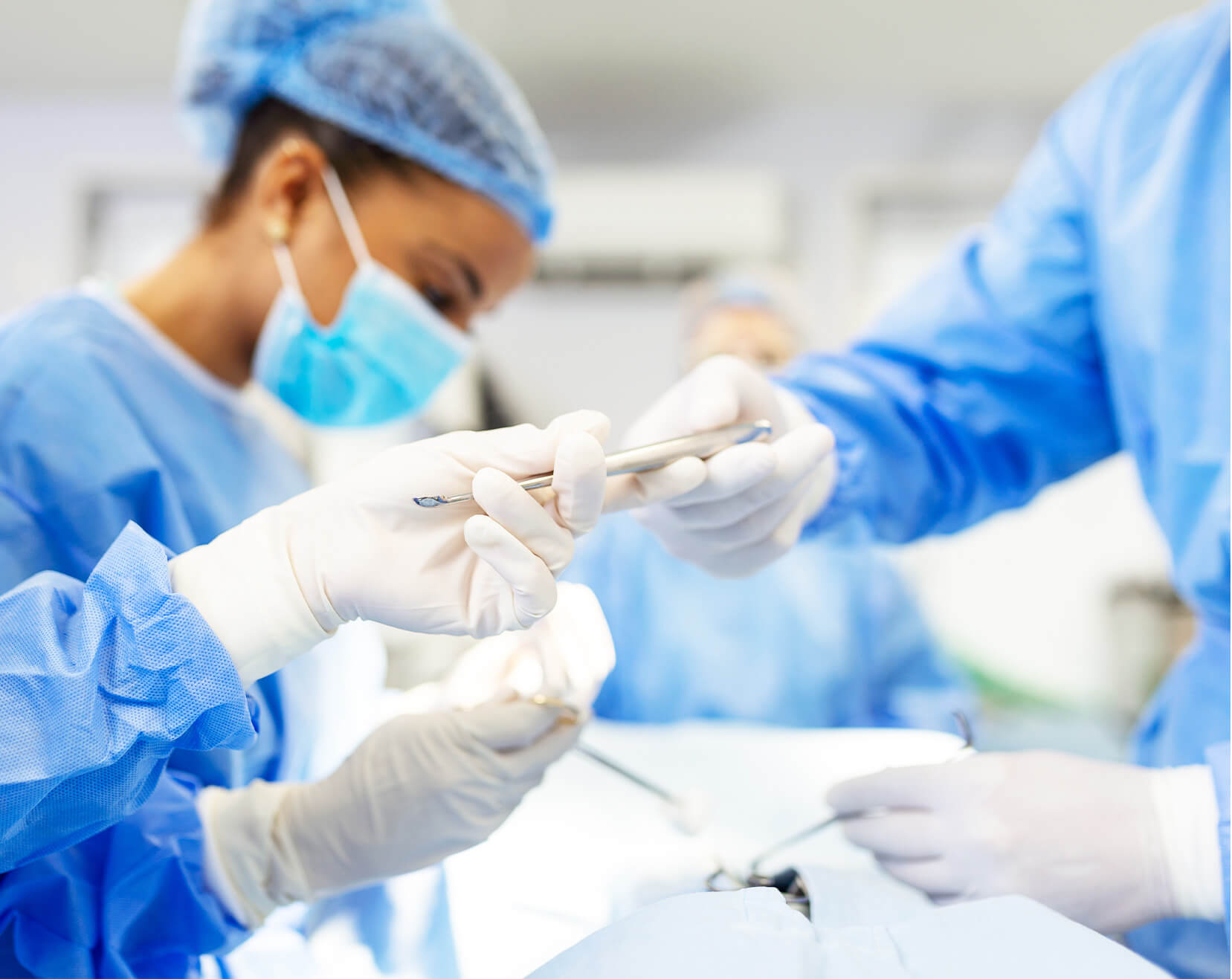When you are passionate about something, it is easy to dedicate a large part of your life to it, and to transmit it to others. And it was with passion that my professional career began. But not with my own, rather with my mother’s. Her passion, dedication and commitment to oculoplastics fascinated me from the very beginning, and in an unconscious way. It made me want to be as her and love it in the same way. Yet that path is one that is lined with numerous challenges to overcome in order to obtain the excellence she achieved.
Dr. Marco Sales

SPECIALIST IN EYELID SURGERY
Once at medical school, in the fourth year of my degree, she “asked” me to help her in the operating theatre. A help that, today, I know I didn’t need, but which made you feel responsible and forced you to study and prepare for all the surgeries in order to measure up. Almost unconsciously, during the following four years (three of my degree and one of preparation for the MIR), I had already learned most of the surgical techniques of oculoplastic, assimilating the difficult surgical manoeuvres as something natural, as the “normal” way of doing things.
In order to become an ophthalmologist, you need to get a good score in the MIR examination and, especially, to be eligible for the most prestigious hospitals. In my case, I wanted to specialise at the Ramón y Cajal, the hospital where the choices for placements ran out first, at that time, generally in the first 100 numbers. I got the placement and, there, I completed my training as an ophthalmologist.
During these 4 years I was lucky enough to train with leading ophthalmologists in each of the subspecialties (retina, strabismus, glaucoma, etc.). In addition to continuing to assist and accompany my mother in surgeries throughout my training, I attended maxillofacial surgery operating theatres, had the opportunity to learn in Brazil and France with leading oculoplastic ophthalmologists, and rotated 6 months in craniofacial surgery in Paris. All this provided me with a very complete training, having performed, during my specialisation, techniques reserved for prestigious specialists with a considerable professional career.
As an assistant specialist, I was able to continue working in the orbit and oculoplastic unit of the Ramón y Cajal Hospital. There I was able to be in charge of and undertake complex orbital pathology cases, as it is a national reference centre (CSUR) for orbital tumours and thyroid orbitopathies. Among the pathologies that the Ministry of Health considers should be treated in reference centres, two affect oculoplastic; tumours and thyroid orbitopathies, being, together with the Bellvitge Hospital, the only two national reference centres to treat these diseases.
Since the end of my internship, I have also been in private medical practice in the speciality. Here, apart from performing the same reconstructive and rehabilitative techniques as in the hospital, I focused on periocular cosmetic surgery, mainly blepharoplasties. The great specialisation in the periocular anatomical region has allowed me to develop the techniques of aesthetic surgery and rejuvenation of this area with precision, optimising the results and minimising possible complications.
And so the cycle closes. The passion that my mother managed to instil in me for her work has become my very own, and I try to transmit it by doing my very best and giving the best of myself to each and every one of my patients.
1.
CAREER
2.
VISION
3.
OCULOPLASTY
4.
COOPERATION
VISION OF OCULOPLASTY
Oculoplastic surgery is the subspecialty of ophthalmology that deals with the study and treatment of conditions of the eyelids, orbit and tear duct.
The oculoplastic surgeon is an ophthalmologist with specific training and an exclusive focus on the eyelids and orbit. As oculoplastic comprises a complex area, it requires a very broad and varied training. Firstly, good training in ophthalmology is essential, as the primary objective must always be, first and foremost, to protect the eye through proper eyelid function. In addition, it also requires knowledge in Plastic Surgery, which allows a harmonious evaluation of the relationship of the eyelids with the rest of the adjacent structures of the face; knowledge in maxillofacial surgery, for the correct management of the bones of the orbit; knowledge in dermatology, to properly assess and treat tumours and skin lesions of the eyelids; and, finally, knowledge in Otorhinolaryngology, due to the strategic location of the orbit, surrounded by the paranasal sinuses. Therefore, it is essential to have specific, thorough and prolonged training, and an exclusive dedication, as only in this way will we be able to offer the highest quality care to our patients.
Reconstructive surgery is surgery that restores damaged or lost parts following trauma or tumours. For instance, to treat most eyelid skin tumours, it is necessary to remove the fragment of eyelid containing the tumour, at times, if the tumour is very extensive, the entire eyelid may have to be sacrificed. Given that the primary function of the eyelids is to protect the eye, the absence of the eyelid, or its poor function after an incorrect repair, could damage the eye in just a short period of time, sometimes even hours. In these cases, oculoplastic surgery reconstructs the eyelid, trying to create a new structure that perfectly fulfils its protective function, and which, at the same in turn, resembles a normal eyelid as closely as possible in order to achieve an optimal functional and aesthetic result.
Rehabilitative surgery is surgery that restores the normal appearance and function of the eyelids, which have been altered by various diseases. For instance, the eyelids may lose their usual morphology and become “everted” or “inverted” so that they no longer make proper contact with the eye and allow, or even cause, constant irritation. Oculoplastic surgery attempts to return the eyelids to their normal position, so that the eye is not damaged, and the eyelids, in turn, recover their normal appearance.
Lastly, cosmetic surgery is responsible for applying the techniques used in the previous points with the aim of trying to rejuvenate the appearance of the eyes.

INTERNATIONAL COOPERATION
During my professional career, I have had the opportunity to cooperate in several campaigns in disadvantaged areas of Africa, especially Dapaong in Togo and Turkana in Kenya.
One of the main causes of blindness in third world countries is trachoma, a chronic infection of the conjunctiva which, as it heals, thickens the eyelids and curves them towards the eye, producing a continuous rubbing of the eyelashes on the ocular surface, and with it opaque scars on the cornea that can lead to blindness. The work done in this aspect/respect by Turkana Eye Project (ojoturkana.org), with whom I have had the opportunity and the honour of collaborating, has been and is extremely important, as medication (Azithromycin) has been widely distributed, with the aim of trying to eradicate trachoma from the region, exceeding 85% population coverage.
The affected cases (with palpebral affectation and misaligned eyelashes) but who do not yet have corneal scars that prevent them from seeing, undergo palpebral surgery to correct the malposition and prevent them from continuing to rub and causing blindness.

CONTACT US
IMO Grupo Miranza Madrid
C/ del Valle Pinares Llanos, 3, 28305 Madrid
910 783 783

